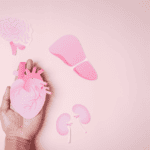
AMA (NSW) Welcomes Human Tissue Act Amendment (Ante-mortem Interventions) Bill 2023
March 15, 2024
Statement from Acting AMA (NSW) President Dr Kathryn Austin on ABC Four Corners episode ‘Pain Factory’
April 12, 2024The Australian Medical Association NSW would like to thank the Select Committee for accepting a subsequent submission to this inquiry and for the chance to appear before you today.
My name is Dr Eveline Staub. I am an AMA (NSW) Councillor and Head of the Department of Neonatology at Royal North Shore Hospital. Neonatology is the subspeciality of paediatrics that cares for newborn infants. I have been a practicing accredited neonatologist for 12 years, 10 of them in Australia, with many more years of training before becoming a recognised specialist. Neonatology teams attend deliveries to help newborns after birth – we are the team for the baby, helping them as required to transition into the life outside the womb. When needed, infants suffering problems after birth are admitted to the Neonatal Intensive Care Unit or NICU. The NICU at Royal North Shore Hospital provides comprehensive intensive care for the sickest and most critical babies from Northern Sydney and across the state.
While this inquiry has heard a great deal about the experiences and trauma suffered by birthing parents, AMA (NSW) believes it is critical for the Committee to hear submissions on behalf of those charged with caring for the baby in the mother baby dyad immediately upon delivery.
As you will see from the AMA (NSW) subsequent submission, we outline the clinical problems associated with the complications that can arise from any birth, and the difficulties in predicting those complications. Sometimes we know which babies are going to be in distress or which babies will need admission to the NICU, for example preterm born infants. But most of the time when my team is called to help babies born at term, it is for cases that until that point showed little to no indication of needing assistance.
There is a saying in neonatology, it is a challenging saying, but the saying is “time is brain”. Quite literally with every minute that a baby is in distress during delivery, by which we mean: does not receive enough oxygen during delivery, the risk increases that this child can suffer lifelong brain damage or worse. Once an infant reaches this level of emergency it is vital that specialist care is provided as soon as is possible. As minutes tick by, so too do a baby’s chance of a normal life or a life at all. Many parents are completely unaware what the potential consequences are when their babies suffer from lack of oxygen during birth and what the obstetric and midwifery staff do to try and avoid this situation at all costs. One of the most common comments I hear from families whose babies we look after in the NICU is: We never knew this could happen.
This is why AMA (NSW) advocates for increased ante-natal education for all parents, which includes how events during delivery can be unpredictable, and can require a fast change of tack to avoid adverse outcomes to the baby.
In my home country of Switzerland, it is routine for neonatologists or paediatricians to be involved in ante-natal education to advise parents about the potential for unplanned outcomes and the care that could be provided as a result. This ensures that parents are better prepared when things do not go as hoped and gives them a greater understanding of what interventions doctors might require to save a baby in times of emergency.
If parents are armed with this education before such time as it is needed, they are less likely to be traumatised when issues occur and will have more time to consider and discuss their wishes prior to a time of high stress emergency.
AMA (NSW) believes comprehensive education involving neonatologists and paediatricians should be made available as part of every birthing parent’s ante-natal preparation, and that funding should be made available to allow such programs to be formulated and implemented across the state.
Thank you for your time. I am open to questions.

